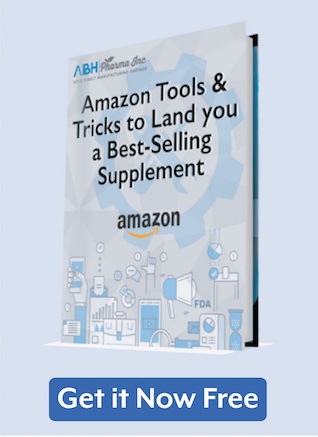Sales and growth in the nutritional and dietary supplement market have been on a steady upswing for several years now.
Today, products that were once available only in upscale and specialty health food stores can be purchased online, at grocery stores, and numerous nutrition and sports chain stores all over the country.
More people than ever are taking dietary supplements, convinced that these products can promote  good health, ameliorate illness, boost energy, aid fitness goals and more.
good health, ameliorate illness, boost energy, aid fitness goals and more.
A 2008 study by The United Kingdom's Food Standards Administration (FSA) claimed that close to one-third of that country’s population regularly take some kind of over the counter vitamin or supplement and that 15% say they take high doses of these products.
Sales growth has been commensurate with the growth of availability, indicating that the full demand may not yet have been tapped by manufacturers and distributors.
What’s more, the wildly diverse range of supplement products available- and conceivable- should be taken as a strong indication that there is a massive potential for demand in an innumerable amount of areas within the industry.
Expert Advice in Supplement Marketing
Naturally, the huge amount of product variety available has consumers in need of a great deal of guidance.
At present, there is such a vast array of products, programs, and conflicting opinions about supplements that the average consumer feels compelled to seek out expert advice on which supplements to take, how often, and in what way.
Jackie Rowe, a ten-year veteran sales representative in the supplement industry said, “You have three types of customers. There’s the gym rats, the health nuts, and tourist.
The gym rats have no loyalty to the store or to the sales rep. They are most interested in the one brand they think is best- the one that will help them pack on muscle the best.
They can be pretty strident about their brand, but they will switch if they can be convinced to.
” She says the ‘gym rat’ will get their brand wherever they can. They aren’t interested in a lot of advice from someone who doesn’t look like them.
The best marketing strategy for them would come from a fellow bodybuilder with a few trophies or degrees. Brands might best pursue this demographic online in order to keep them within reach.
“Then there’s the health food nut,” Jackie went on. “They tend to be more interested in the advice. They have little loyalty to the brand, and tend to latch on to their preferred expert- especially when that expert is someone they can access in person.”
These supplement shoppers are loyal to the sales professional who they see as their own dietary advice guru.
Should that sales rep move to another store, the health nut will follow them. This means that brick and mortal dietary supplement retailers would do well to spot their best floor talent and nurture them to develop long-term relationships with this type of consumer.
Finally, according to Jackie, you have the tourists. “They tend to come in out of curiosity, or if they have had bad luck with doctors dealing with a health condition.
They can be converted to regular customers if they are given the right advice by a trained and knowledgeable dietitian.
Often times they can treat their conditions through nutrition in situations where a doctor would only medicate them with pharmaceuticals. But if they don’t get a quick result, they are likely to keep looking.”
These three groups of dietary supplement buyers represent a wide range of factors- all of which are critical portions of the industry.
Optimizing Consumer Outreach
An individual from any of these three demographics may go to an online vendor, or a physical location in their search to fill their need.
All of which frighten the dietary supplement contract manufacturing leaders of the world. Any single location might do well to optimize their brand in order to best serve the community where their store exists.
But it is wise to have an online presence that is somewhat more fluid- offering nutritional advice and products, as well as fitness and sports oriented products and sales approaches in order to make the most of their inventory.
A purely online vendor can build a website with multiple faces, or landing pages each of which will tend to attract a specific type of traffic, while a physical location is less malleable.
Today’s consumer is more interested than ever in vitality and wellbeing- and are willing to spend more on dietary supplements than at any other point in history.
A Nielson Global Health and Wellness Survey published in 2015 reports that in a study of 30,000 individuals, nearly 80% were willing to pay higher prices for natural foods such as organic, GMO-free, and mineral or calcium-fortified products.
Distrust in Medicine Driving Supplement Industry Growth
Growing distrust in the medical industry has been cited as a major factor in the growth of dietary supplements.
HealthDay News reported in 2014 that Americans are less likely to place their trust in a medical professional than are the citizens of any other country. Harvard research corroborated this finding.
It stands to reason. The CDC admits that the medical error is the third leading cause of injury and death in the United States.
And many commentators have remarked that, were the medical industry to admit to all of its errors, medical errors might possibly rise to the number one cause of deaths and injury in this country.
This means the supplement industry has some big shoes to fill as customers look to sales professionals with nutritional training to sell them products. Big shoes that can only be filled by top of the line dietary supplement manufacturers.
It also places a huge burden on the industry to fill this niche responsibly without violating scope of practice regulations.
In the near future, many forward-thinking merchants will be looking to onboard medical professionals to more safely fill this growing sector of the market. Regardless of how regulations change, this is sure to be an important factor going forward.







